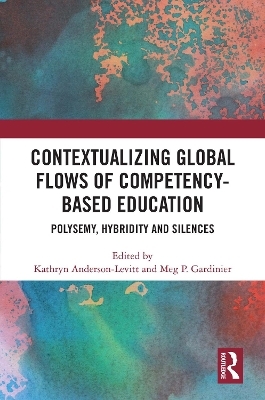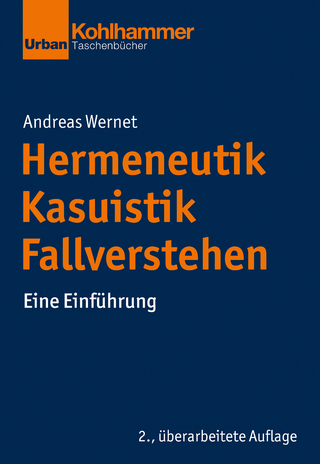
Contextualizing Global Flows of Competency-Based Education
Routledge (Verlag)
978-1-032-56380-0 (ISBN)
The new comparative research in this volume explores the global flow of competence-based education, curricular policy, and frameworks for instructional practice. Taking critical perspectives, the chapters trace the pathways through which educators and policy actors adopted and reshaped competence-based education as promoted by the OECD, the World Bank, and the European Union.
The authors ask: What purposes do competence-based educational reforms serve? How are competence-based models internationally deployed and locally modified? What happens as competence-based reforms get re-contextualized and contested in particular cultural, social, and political contexts? In their nuanced examination of these global flows, the authors theorize how competence-based reform strategies variously produce hybridity, silent borrowing, “loud borrowing,” and new social imaginaries. Although entangled with other “hot topics” in educational research —skills and dispositions for citizenship and employment; higher-order and critical thinking; and socio-emotional learning—competence itself has multiple, fluid meanings. The authors dissect this polysemy while documenting the pivotal role of key actors in the development, design, and deployment of reforms in diverse international contexts.
Contextualizing Global Flows of Competency-Based Education will be a key resource for academics, researchers, and advanced students of comparative education, educational research, curriculum studies, sociology, and education leadership and policy.This book was originally published as a special issue of Comparative Education.
Kathryn Anderson-Levitt, Professor Emerita of Anthropology at the University of Michigan–Dearborn, USA, also taught in UCLA’s Department of Education 2011–2019. Her books include Teaching cultures (2002), and Local meanings, global schooling (2003). Meg P. Gardinier is a global education policy researcher, instructor, and manager. She has published on issues such as education in post-communist Albania; teachers as agents of change; and the policy influence of the OECD. She is currently based in Washington DC.
Introduction— Contextualising global flows of competency-based education: polysemy, hybridity and silences 1. Transnational competence frameworks and national curriculum-making: the case of Sweden 2. The introduction of competence-based education into the compulsory school curriculum in France (2002–2017): hybridity and polysemy as conditions for change 3. Knowledge for the elites, competencies for the masses: political theatre of educational reforms in the Russian Federation 4. Curricular design for competencies in basic education in Uruguay: Positions and current debates (2008–2019) 5. Moral priority or skill priority: a comparative analysis of key competencies frameworks in China and the United States 6. 21st century skills in the United States: a late, partial and silent reform 7. What kind of citizens? Constructing ‘Young Europeans’ through loud borrowing in curriculum policy-making in Kosovo 8. Imagining globally competent learners: experts and education policy-making beyond the nation-state
| Erscheinungsdatum | 02.11.2023 |
|---|---|
| Verlagsort | London |
| Sprache | englisch |
| Maße | 174 x 246 mm |
| Gewicht | 540 g |
| Themenwelt | Sozialwissenschaften ► Pädagogik ► Allgemeines / Lexika |
| Sozialwissenschaften ► Pädagogik ► Bildungstheorie | |
| ISBN-10 | 1-032-56380-X / 103256380X |
| ISBN-13 | 978-1-032-56380-0 / 9781032563800 |
| Zustand | Neuware |
| Informationen gemäß Produktsicherheitsverordnung (GPSR) | |
| Haben Sie eine Frage zum Produkt? |
aus dem Bereich


